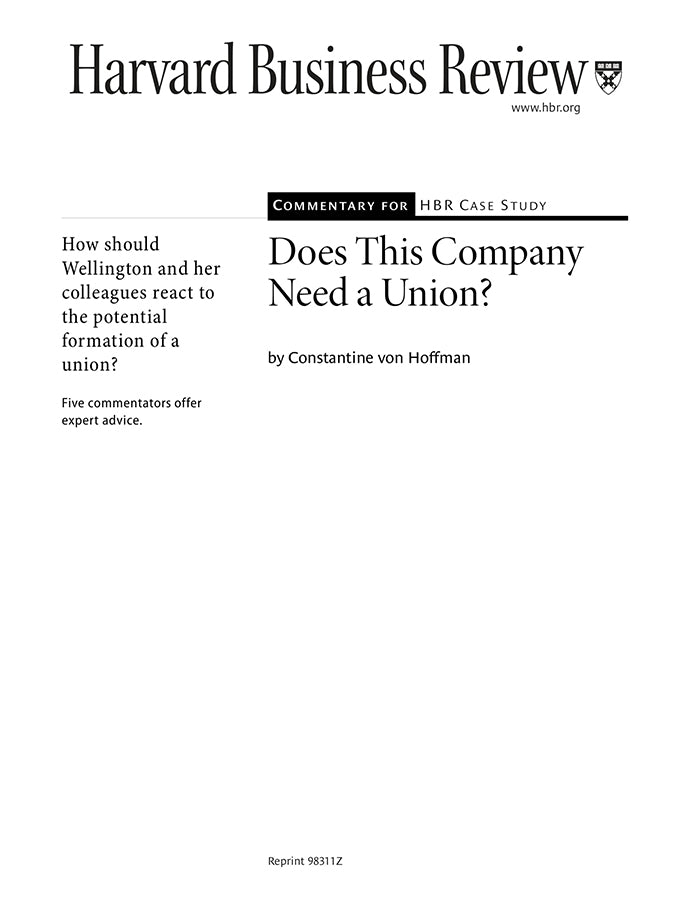Does This Company Need a Union? (Commentary for HBR Case Study)
受取状況を読み込めませんでした
For teaching purposes, this is the commentary-only version of the HBR case study. The case-only version is reprint 98311X. The complete case study and commentary is reprint 98311. No doubt about it, the top managers in this fictitious case study agree, Wellington Associates is a great place to work. Analysts at the high-tech consulting firm enjoy some of the best pay in the industry. And their benefits are extensive: flextime, liberal educational opportunities, comprehensive medical and dental coverage, generous vacation leave, and even on-site day care. So it came as something of a shock to CEO Jane Wellington and her top executives when HR chief Elvin Cusack started out the weekly senior-management meeting by declaring that the United Office Workers Union had begun organizing the support staff. Turns out, Cusack explained, that the company looks very different from the support staff's point of view. Although their starting salaries are indeed competitive, raises average a mere 2% to 3%, and promotions to professional ranks are rare. Medical and dental coverage take a greater chunk out of clerical pay than out of the larger professional salaries, and the cost of the day care center is pretty much out of reach for the support staff. Flextime is impractical for workers who need to be in the office to answer phones and to file papers. Worse, the support staff is expected to accommodate the analysts' flexible schedules; if an analyst decides to work late to finish a project, the secretary has to stay as well. What to do? Suggestions ranged from "fire 'em" to "say nothing before calling in legal counsel." In 98311 and 98311Z, Susan Schurman, Marick F. Masters, Robert S. Atkin, Jacqueline M. Blanchard, and Fern Feil examine Wellington's options and its legal obligations.
【書誌情報】
ページ数:8ページ
サイズ:A4
商品番号:HBSP-98311Z
発行日:1998/5/1
登録日:2011/7/29


